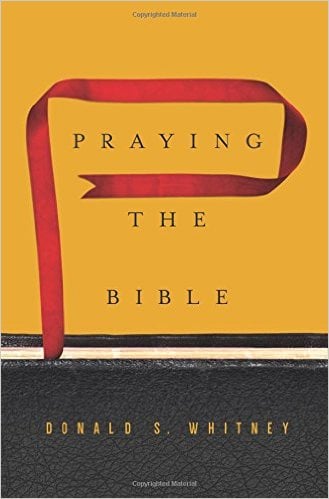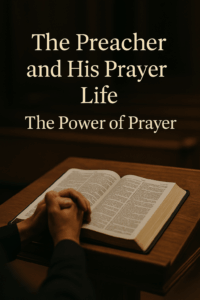⏱️ Estimated Reading Time: 4 min read
Okay, I admit it. My prayer life is often duller than that knife I have out in the garage that will not even cut through warm butter. I have often felt guilty about my prayer life or lack of one. It is not as though I do not have a lot to speak with God about as there is always something going on that needs to be brought before the throne of the Father in prayer. There just seems to be something about the exercise of prayer, knowing what to say without feeling repetitious or my mind is not staying focused.
If you are in the same pickle as I am regarding your prayer life, let me suggest reading Donald Whitney’s excellent book titled Praying the Bible. Whitney aptly notes the biggest issue with our prayer lives is the aforementioned repetition, namely “saying the same things about the same things” which leads to our attention span taking a hit which leads to our overall prayer life taking a serious hit. Ultimately, we end up feeling guilty, defeated, and frustrated with prayer, often getting to the point where we honestly hope we are not even asked to pray in public or in private.
There is a solution to this rut. Whitney suggests praying through the Bible. At first, I was not sure how this would work. Pray through the Bible? I get there are prayers in the Bible that we can use, even use verbatim, but would that not qualify as getting into the repetitious mode we are trying to avoid? Whitney aptly addresses that issue, noting the idea is not to pray the Bible as a means of shall we say cheating. The purpose of praying the Bible is it is chock full of ready-made, God inspired truth that is relevant to each and every situation in our life.
Whitney recommends the best place to start praying the Bible is in the Psalms. They are 150 chapters laden with the issues of life. While certainly the Psalms are often viewed as praises to God, they also can easily be turned into prayers by simply reading the text, and praying about what comes to mind as we read the words of the Psalms, in particular, the specific issues the Psalmist addresses that are impactful to our own situations. Given the sheer amount of Psalms available, the fear of getting into repetitious word usage will be replaced with a plethora of discussion points with God.
The reader is also presented by Whitney with ways to pray other texts of Scripture to include what constitutes the majority of the Bible, that of the narrative. We can read a section of the narrative, reflect on what took place, and then go to God in prayer regarding how the actions in that periscope relate to something we experiencing, something family related, in our culture at large, or those on the other side of the world. Praying the Bible not only helps with our prayer life, it forces us to meditate on the passage we are reading – a true two for one bonus.
If you are struggling in your prayer life, give this book an immediate read. Put into practice the tools Whitney shares throughout and I can guarantee your prayer life will experience a kick-start back in the right direction. The former doldrums of praying will be replaced with earnest, faithful, and joyous prayer as you bring to God through the words of Scripture what is on your heart and mind. I assure you that your mind will wander a lot less if you put into practice the valuable tips Whitney provides. This is a short book with an impact that will last a lifetime.




